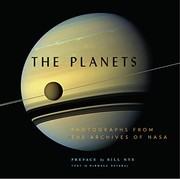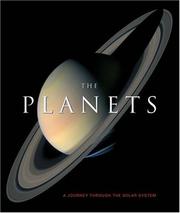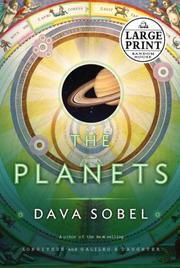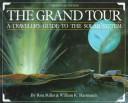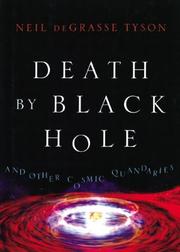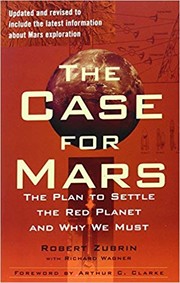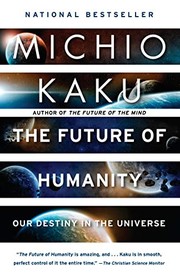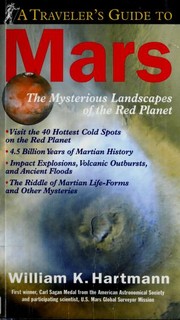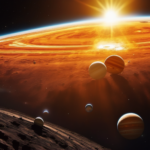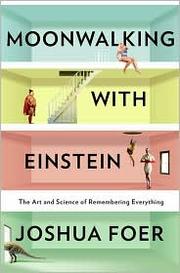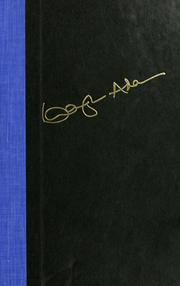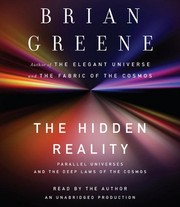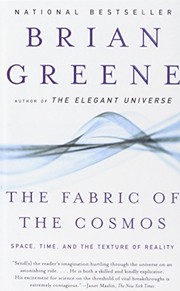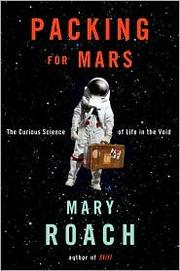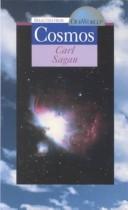Are you ready to embark on a literary journey through the cosmos? Whether you’re a space enthusiast, a science fiction fan, or simply curious about the mysteries of the universe, the 20 best books about planets are sure to captivate and inspire you. From stunning visual explorations of our solar system to in-depth scientific studies of distant exoplanets, these books offer a fascinating insight into the wonders of the universe. Get ready to delve into the beauty and complexity of our celestial neighbors with these captivating planets books that will ignite your imagination and expand your understanding of the cosmos.
Contents
- 1 20 Best Planets Books
- 2 The Planets: Photographs from the Archives of NASA
- 3 The Planets: A Journey Through the Solar System
- 4 The Planets
- 5 The Grand Tour: A Traveler’s Guide to the Solar System
- 6 The Planet Factory: Exoplanets and the Search for a Second Earth
- 7 Death by Black Hole: And Other Cosmic Quandaries
- 8 The Case for Mars: The Plan to Settle the Red Planet and Why We Must
- 9 How to Live on Mars: A Trusty Guidebook to Surviving and Thriving on the Red Planet
- 10 The Future of Humanity: Terraforming Mars, Interstellar Travel, Immortality, and Our Destiny Beyond Earth
- 11 A Traveler’s Guide to Mars
- 12 Moonwalking with Einstein: The Art and Science of Remembering Everything
- 13 The Hitchhiker’s Guide to the Galaxy
- 14 The Martian
- 15 Pale Blue Dot: A Vision of the Human Future in Space
- 16 The Hidden Reality: Parallel Universes and the Deep Laws of the Cosmos
- 17 The Fabric of the Cosmos: Space, Time, and the Texture of Reality
- 18 Packing for Mars: The Curious Science of Life in the Void
- 19 Cosmos
- 20 The Planets: The Definitive Visual Guide to Our Solar System
- 21 The Planets: A Very Short Introduction
- 22 Final Thoughts on Best Planets Books
- 23
20 Best Planets Books
The Planets: Photographs from the Archives of NASA
by Nirmala Nataraj
The Planets: Photographs from the Archives of NASA is a stunning book about planets that takes readers on a visual journey through the mysteries of our solar system. Nirmala Nataraj has curated a collection of breathtaking photographs from NASA’s archives, showcasing the beauty and wonder of our celestial neighbors. From the fiery intensity of the sun to the icy plains of Pluto, the book offers a glimpse into the diverse landscapes and formations that make up our planets.
Each page of the book is filled with awe-inspiring images that capture the essence of each planet and provide a deeper understanding of our place in the cosmos. Whether you’re a space enthusiast, a photography lover, or simply curious about the universe, this visually stunning book on planets will leave you in awe of the beauty and complexity of our solar system. The Planets: Photographs from the Archives of NASA is a must-have for anyone who wants to explore the wonders of space from the comfort of their own home.
The Planets: A Journey Through the Solar System
by Giles Sparrow
The Planets: A Journey Through the Solar System by Giles Sparrow is a captivating book on planets that takes readers on an extraordinary voyage through our cosmic neighborhood. With stunning imagery and detailed descriptions, Sparrow provides a comprehensive overview of the celestial bodies that make up our solar system.
This book about planets delves into the unique characteristics of each planet, from the scorching heat of Mercury to the icy plains of Pluto. Readers will discover the latest scientific discoveries and theories about these enigmatic worlds, shedding light on their formation, composition, and potential for harboring life.
Through vivid storytelling and expert insights, Sparrow brings the wonders of the planets to life, making this planets book a must-read for anyone fascinated by the mysteries of space. Whether you’re a seasoned astronomer or a curious novice, The Planets is sure to ignite your imagination and deepen your understanding of our place in the cosmos.
The Planets
by Dava Sobel
The Planets by Dava Sobel is a captivating book on celestial bodies in our solar system. Sobel takes readers on an enchanting journey through the history, science, and mythology of the planets, offering an in-depth exploration of each one. From the fiery surface of Mercury to the mysterious rings of Saturn, the book provides a rich tapestry of information about the planets and their place in the universe.
With her engaging writing style and meticulous research, Sobel brings the planets to life, weaving together scientific discoveries, historical anecdotes, and cultural significance. Readers will gain a deeper understanding of the planets and their influence on human culture and imagination.
Whether you’re a space enthusiast or a lover of history and mythology, this book about planets will satisfy your curiosity and leave you with a newfound appreciation for the wonders of the cosmos. The Planets is a must-read for anyone who has ever gazed up at the night sky and wondered about the mysteries of our solar system.
The Grand Tour: A Traveler’s Guide to the Solar System
by Ron Miller
The Grand Tour: A Traveler’s Guide to the Solar System by Ron Miller is a captivating book about planets that takes readers on an extraordinary journey through our cosmic neighborhood. This visually stunning book provides an in-depth exploration of the planets, moons, and other celestial bodies that make up our solar system. Ron Miller, an acclaimed artist and writer, combines his expertise in both art and science to create a comprehensive guide that is both informative and visually breathtaking.
Readers will embark on a virtual tour through the planets book, learning about their unique features, histories, and potential for future exploration. With detailed illustrations and expertly crafted descriptions, The Grand Tour offers a rich and immersive experience that will leave readers feeling like they have traveled to the far reaches of our solar system. Whether you are a space enthusiast, an artist, or simply curious about the wonders of the cosmos, this book on planets is sure to inspire awe and wonder at the beauty and complexity of our celestial neighborhood.
The Planet Factory: Exoplanets and the Search for a Second Earth
by Elizabeth Tasker
The Planet Factory by Elizabeth Tasker is a fascinating exploration of exoplanets and the quest to find a second Earth. Tasker, an astrophysicist, takes readers on a captivating journey through the universe, delving into the science of planet formation and the search for habitable worlds beyond our solar system. With a blend of engaging storytelling and cutting-edge research, the book reveals the latest discoveries in exoplanet science, from super-Earths to gas giants, and examines the potential for finding a planet capable of supporting life.
Tasker’s writing is accessible and captivating, making complex scientific concepts easy to understand for readers of all backgrounds. Whether you’re a seasoned space enthusiast or new to the wonders of the cosmos, The Planet Factory offers a compelling and thought-provoking look at the diversity of planetary systems and the possibility of finding another Earth-like world. This book on planets is a must-read for anyone intrigued by the mysteries of the universe and the ongoing search for exoplanets.
Death by Black Hole: And Other Cosmic Quandaries
by Neil deGrasse Tyson
Death by Black Hole: And Other Cosmic Quandaries is a fascinating book on the mysteries of the universe by renowned astrophysicist Neil deGrasse Tyson. In this captivating collection of essays, Tyson delves into the wonders of the cosmos, exploring topics such as black holes, the nature of space and time, and the possibility of extraterrestrial life.
With his trademark wit and clarity, Tyson takes readers on a journey through the complexities of the universe, offering insights into the latest discoveries in astrophysics and tackling some of the most perplexing questions about the cosmos. From the birth and death of stars to the search for habitable exoplanets, this book is a thought-provoking exploration of the mysteries that surround us.
Whether you’re a seasoned space enthusiast or simply curious about the wonders of the universe, Death by Black Hole is a must-read for anyone interested in the beauty and enigma of the cosmos. Tyson’s engaging writing style and profound knowledge make this book a captivating and enlightening read for anyone fascinated by the celestial bodies and beyond.
The Case for Mars: The Plan to Settle the Red Planet and Why We Must
by Robert Zubrin
The Case for Mars: The Plan to Settle the Red Planet and Why We Must by Robert Zubrin is a captivating book about planets that presents a compelling argument for the human exploration and colonization of Mars. Zubrin, an aerospace engineer, outlines a detailed plan for sending humans to Mars within the next decade and establishing a permanent settlement on the red planet.
Throughout the planets book, Zubrin addresses the scientific, technical, and ethical considerations of Mars exploration, drawing on his expertise to provide a thorough and accessible analysis of the challenges and opportunities presented by the red planet. He makes a persuasive case for the importance of Mars as a potential second home for humanity and explores the potential benefits of a sustained human presence on the red planet.
With its combination of scientific insight and visionary ambition, The Case for Mars is a must-read for anyone interested in the future of space exploration and the potential for human colonization of other planets.
How to Live on Mars: A Trusty Guidebook to Surviving and Thriving on the Red Planet
by Robert Zubrin
How to Live on Mars: A Trusty Guidebook to Surviving and Thriving on the Red Planet by Robert Zubrin is a fascinating book about planets that offers a comprehensive overview of what it would take to live on Mars. Zubrin, a renowned aerospace engineer and advocate for human exploration of Mars, provides readers with a detailed and engaging look at the challenges and possibilities of colonizing the red planet.
The book covers everything from the practicalities of building habitats and generating food and water to the psychological and philosophical aspects of living in a harsh and isolated environment. Zubrin’s writing is both informative and entertaining, making complex scientific concepts accessible to a wide audience. Whether you’re a space enthusiast, a science fiction fan, or simply curious about the future of human exploration, this planets book is sure to captivate and educate. With its blend of scientific expertise and imaginative speculation, How to Live on Mars is a must-read for anyone interested in the possibility of humans one day calling planets beyond Earth home.
The Future of Humanity: Terraforming Mars, Interstellar Travel, Immortality, and Our Destiny Beyond Earth
by Michio Kaku
The Future of Humanity: Terraforming Mars, Interstellar Travel, Immortality, and Our Destiny Beyond Earth by Michio Kaku is a captivating exploration of the potential future of human civilization beyond our home planet. This thought-provoking book delves into the possibilities of terraforming Mars, enabling interstellar travel, and even achieving immortality. Michio Kaku, a renowned theoretical physicist, presents a compelling vision of humanity’s destiny beyond Earth, backed by scientific theories and technological advancements.
Readers will be enthralled by Kaku’s insights into the challenges and opportunities of colonizing other celestial bodies, making this a must-read for anyone fascinated by the future of space exploration and the potential for human expansion beyond our own planet. Whether you’re a space enthusiast, a science fiction aficionado, or simply curious about the possibilities of life beyond Earth, this book about planets offers a thought-provoking and exhilarating journey into the potential future of humanity in the cosmos.
A Traveler’s Guide to Mars
by William K. Hartmann
A Traveler’s Guide to Mars by William K. Hartmann is a captivating book about the enigmatic red planet. This comprehensive guide provides readers with a fascinating exploration of the geological, historical, and hypothetical aspects of Mars. Hartmann, a renowned planetary scientist, takes readers on a journey through the Martian landscape, discussing its ancient riverbeds, towering volcanoes, and mysterious polar ice caps.
The book is filled with stunning images and detailed maps, allowing readers to immerse themselves in the alien beauty of Mars. Hartmann also delves into the history of Mars exploration, from the first telescopic observations to the latest robotic missions. He speculates on the possibility of human colonization and offers insights into the potential challenges and rewards of such an endeavor.
Whether you’re a space enthusiast, a science buff, or simply curious about the mysteries of the cosmos, A Traveler’s Guide to Mars is a must-read. This book about planets will leave you with a newfound appreciation for the red planet and a sense of wonder about the possibilities that lie beyond our own world.
Moonwalking with Einstein: The Art and Science of Remembering Everything
by Joshua Foer
Moonwalking with Einstein: The Art and Science of Remembering Everything by Joshua Foer is a fascinating exploration of the human memory and the techniques used by memory champions. The book follows the author’s journey as he delves into the world of competitive memorization, culminating in his participation in the U.S. Memory Championship. Through engaging storytelling and in-depth research, Foer introduces readers to the concept of “the memory palace” and other mnemonic devices used to remember vast amounts of information.
With a blend of science, history, and personal anecdotes, Moonwalking with Einstein offers valuable insights into the workings of the human mind and the potential for improving memory skills. Foer’s writing style is captivating, making this book a compelling read for anyone interested in unlocking the full potential of their memory. Whether you’re a memory enthusiast or simply curious about the inner workings of the mind, this book is sure to leave a lasting impression.
The Hitchhiker’s Guide to the Galaxy
by Douglas Adams
The Hitchhiker’s Guide to the Galaxy is a quirky and hilarious science fiction novel that follows the adventures of Arthur Dent, an ordinary human who is saved from the destruction of Earth by Ford Prefect, an alien researcher for the titular guidebook. Together, they embark on a journey through space, encountering a colorful cast of characters, including the two-headed, three-armed ex-President of the Galaxy, Zaphod Beeblebrox, and the depressed robot, Marvin.
As they travel through the galaxy, readers are treated to a satirical and absurd look at the universe, filled with clever wordplay, biting social commentary, and absurd scenarios. The book is a delightful blend of wit, imagination, and thought-provoking ideas about the nature of the universe and our place in it. Whether you’re a fan of sci-fi, comedy, or simply enjoy a good adventure, this book about planets has something for everyone.
The Martian
by Andy Weir
The Martian by Andy Weir is a gripping book about planets that follows the story of astronaut Mark Watney, who is stranded on Mars after a fierce storm forces his crew to evacuate. With limited supplies and no way to communicate with Earth, Watney must rely on his ingenuity and resourcefulness to survive on the harsh, barren surface of the red planet. As he battles the elements and his own dwindling hope, Watney’s determination and quick thinking make for a thrilling and inspiring read.
Weir’s vivid descriptions and attention to detail bring the desolate landscape of Mars to life, making the reader feel as though they are right there alongside Watney, struggling to overcome the challenges of life on an alien world. The Martian is a captivating book on planets that combines elements of science fiction, survival, and adventure, making it a must-read for anyone with an interest in space exploration and the human spirit’s resilience in the face of adversity.
Pale Blue Dot: A Vision of the Human Future in Space
by Carl Sagan
Pale Blue Dot: A Vision of the Human Future in Space is a thought-provoking book about the potential for human exploration and colonization beyond Earth. Written by renowned astrophysicist Carl Sagan, this book takes readers on a journey through space and time, exploring the wonders of the cosmos and the possibilities that lie beyond our own planet. Sagan’s engaging writing style and deep knowledge of the universe make this book a captivating and enlightening read.
Through vivid descriptions and awe-inspiring imagery, Sagan discusses the potential for human life on other celestial bodies, offering a vision of a future where humanity becomes a multi-planetary species. He delves into the scientific and ethical implications of space exploration, addressing the challenges and opportunities that lie ahead as we venture into the unknown. Whether you’re a space enthusiast or simply curious about the mysteries of the universe, Pale Blue Dot is a must-read for anyone interested in the future of humanity beyond our own pale blue planet.
The Hidden Reality: Parallel Universes and the Deep Laws of the Cosmos
by Brian Greene
The Hidden Reality: Parallel Universes and the Deep Laws of the Cosmos by Brian Greene delves into the mind-bending concept of parallel universes and their potential existence. In this thought-provoking book, Greene explores the various theories and scientific hypotheses that suggest the existence of multiple universes beyond our own. Through captivating storytelling and clear explanations, Greene takes readers on a journey through the cutting-edge of theoretical physics, discussing the implications of parallel universes on our understanding of the cosmos.
With a blend of accessible language and complex theories, The Hidden Reality offers a fascinating exploration of the fundamental laws of nature and the possibility of other realms existing alongside our own. Greene’s exploration of this mind-bending topic will leave readers with a newfound appreciation for the vastness of the cosmos and the potential for unseen universes to exist beyond our own. If you’re intrigued by the idea of parallel universes and want to expand your understanding of the universe, then this book is a must-read.
The Fabric of the Cosmos: Space, Time, and the Texture of Reality
by Brian Greene
The Fabric of the Cosmos: Space, Time, and the Texture of Reality by Brian Greene is a captivating exploration of the fundamental structure of the universe. Greene, a renowned physicist, delves into the mind-bending concepts of space, time, and the nature of reality, taking readers on a journey through the mysteries of the cosmos.
This book on planets presents complex theories with clarity and enthusiasm, making it accessible to readers of all backgrounds. Greene skillfully weaves together insights from physics, astronomy, and philosophy to paint a comprehensive picture of the fabric of the universe.
From the mind-bending implications of quantum mechanics to the enigmatic nature of black holes, Greene’s narrative is filled with fascinating revelations about the nature of space and time. It’s a planets book that challenges readers to question their understanding of the universe and invites them to contemplate the profound mysteries that lie at the heart of existence.
Packing for Mars: The Curious Science of Life in the Void
by Mary Roach
Packing for Mars: The Curious Science of Life in the Void by Mary Roach is an enthralling exploration of the challenges of human space travel. Roach delves into the fascinating world of space exploration, offering readers a humorous and insightful look at the peculiarities of life in outer space. This book on planets takes readers on a journey through the intricacies of preparing for space missions, from the psychological toll of isolation to the peculiarities of bodily functions in zero-gravity environments. Roach’s witty and engaging writing style makes even the most complex scientific concepts accessible and entertaining, making Packing for Mars a must-read for anyone interested in the mysteries of space travel. Whether you’re a space enthusiast or simply curious about the intricacies of life beyond Earth, this book about planets will leave you with a newfound appreciation for the extraordinary efforts required to send humans into the void.
Cosmos
by Carl Sagan
Cosmos by Carl Sagan is a captivating exploration of the universe, a renowned book about planets that takes readers on an awe-inspiring journey through space and time. Sagan, a distinguished astrophysicist and science communicator, delves into the wonders of the cosmos, from the origins of the universe to the possibility of extraterrestrial life. Through his eloquent prose and profound insights, Sagan invites readers to ponder the mysteries of the stars, planets, and galaxies.
With its blend of scientific knowledge and philosophical contemplation, Cosmos offers a thought-provoking and enlightening perspective on our place in the universe. Sagan’s passion for astronomy shines through in every page, making this book on planets a timeless classic that continues to inspire and educate readers of all ages. Whether you are a seasoned astronomer or a curious novice, Cosmos is a must-read for anyone eager to expand their understanding of the cosmos and beyond.
The Planets: The Definitive Visual Guide to Our Solar System
by Robert Dinwiddie
The Planets: The Definitive Visual Guide to Our Solar System by Robert Dinwiddie is a stunning and comprehensive book about the celestial bodies in our solar system. This visually captivating book on planets provides a detailed exploration of the various planets, moons, and other celestial objects, using high-quality images and informative text to bring the wonders of our solar system to life.
Readers will be taken on a mesmerizing journey through space, learning about the unique characteristics and fascinating features of each planet, from the swirling storms of Jupiter to the icy plains of Pluto. The book also delves into the history of space exploration, providing insight into the groundbreaking missions and discoveries that have expanded our knowledge of the planets.
Whether you’re a seasoned astronomer or simply have a curiosity about the cosmos, this planets book is sure to captivate and educate, making it a must-have addition to any space enthusiast’s library.
The Planets: A Very Short Introduction
by David A. Rothery
The Planets: A Very Short Introduction by David A. Rothery is an engaging and concise exploration of our solar system. This informative book provides a fascinating overview of the planets, offering insight into their formation, geology, atmospheres, and potential for future exploration. Rothery, a leading planetary scientist, presents complex scientific concepts in an accessible manner, making this a perfect read for anyone curious about the mysteries of the cosmos. Whether you’re a novice stargazer or a seasoned astronomer, this book about planets is sure to captivate with its richly detailed descriptions and stunning imagery. From the fiery surface of Mercury to the icy plains of Pluto, The Planets offers a comprehensive journey through our celestial neighborhood, shedding light on the unique characteristics of each celestial body. Whether you’re passionate about astronomy or simply intrigued by the wonders of the universe, this planets book is an essential addition to any curious reader’s collection.
Final Thoughts on Best Planets Books
Exploring the mysteries of the universe has always been a fascination for many, and these 20 best books about Planets offer a captivating journey through our solar system and beyond. Whether you are an avid stargazer or a curious reader, these books provide an in-depth look at the planets, their formation, and the potential for life beyond Earth. From stunning imagery to thought-provoking theories, these books are sure to inspire wonder and awe for the vastness of the cosmos.
Which book about Planets is best?
The best book on Planets can vary with personal preference, but three widely recommended titles are:
- The Planets: Photographs from the Archives of NASA by Nirmala Nataraj,
- The Planets: A Journey Through the Solar System by Giles Sparrow,
- The Planets by Dava Sobel.
Each offers valuable insights and could be a great starting point.
What are the best books to learn about Planets?
For those looking to learn about Planets, there is a wealth of literature that can provide a comprehensive understanding of the subject. Some of the most highly recommended books include:
- The Planets: Photographs from the Archives of NASA by Nirmala Nataraj,
- The Planets: A Journey Through the Solar System by Giles Sparrow,
- The Planets by Dava Sobel,
- The Grand Tour: A Traveler’s Guide to the Solar System by Ron Miller,
- The Planet Factory: Exoplanets and the Search for a Second Earth by Elizabeth Tasker,
- Death by Black Hole: And Other Cosmic Quandaries by Neil deGrasse Tyson,
- The Case for Mars: The Plan to Settle the Red Planet and Why We Must by Robert Zubrin,
- How to Live on Mars: A Trusty Guidebook to Surviving and Thriving on the Red Planet by Robert Zubrin,
- The Future of Humanity: Terraforming Mars, Interstellar Travel, Immortality, and Our Destiny Beyond Earth by Michio Kaku,
- A Traveler’s Guide to Mars by William K. Hartmann
These books offer a range of perspectives on Planets, covering various aspects and approaches to the subject.
What are the best books about Planets?
The best books about Planets are:
- The Planets: Photographs from the Archives of NASA by Nirmala Nataraj,
- The Planets: A Journey Through the Solar System by Giles Sparrow,
- Moonwalking with Einstein: The Art and Science of Remembering Everything by Joshua Foer,
- The Hitchhiker’s Guide to the Galaxy by Douglas Adams,
- How to Live on Mars: A Trusty Guidebook to Surviving and Thriving on the Red Planet by Robert Zubrin,
- Death by Black Hole: And Other Cosmic Quandaries by Neil deGrasse Tyson.
Each offers unique insights into the subject. While these books about Planets are highly regarded, it’s important to note that any list of ‘best’ books is subjective and reflects a range of opinions.
What are the best Planets books of all time?
Choosing the best Planets books of all time can vary depending on who you ask, but five titles that are often celebrated include
- The Planets: Photographs from the Archives of NASA by Nirmala Nataraj,
- The Planets: A Journey Through the Solar System by Giles Sparrow,
- The Planet Factory: Exoplanets and the Search for a Second Earth by Elizabeth Tasker,
- How to Live on Mars: A Trusty Guidebook to Surviving and Thriving on the Red Planet by Robert Zubrin,
- and Moonwalking with Einstein: The Art and Science of Remembering Everything by Joshua Foer.
Each of these books has made a significant impact in the field of Planets and continues to be influential today.

